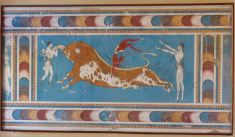Speaker
Description
Nearly all physics analyses at CMS rely on precise reconstruction of particles from their signatures in the experiment’s calorimeters. This requires both assignment of energy deposits to particles and recovery of various properties across the detector. These tasks have traditionally been performed by classical algorithms and BDT regressions, both of which rely on human-engineered high level quantities. However, bypassing human feature engineering and instead training deep learning algorithms on low-level signals has the potential to further recover lost information and improve the overall reconstruction. We have therefore developed novel algorithms for particle reconstruction in the CMS calorimeters based on graph neural networks, which allow us to represent the energy deposits recorded in the calorimeter directly in our models. In this work we will show the performance of our GNN architecture in energy reconstruction in the CMS ECAL, where we obtain improved energy resolutions and resilience to effects such as detector gaps, early showering upstream of the calorimeter, and pileup with respect to the previous state-of-the-art approach. This contribution will also cover how similar approaches can be applied to energy reconstruction in test beam data for the CMS High-Granularity Calorimeter (HGCAL), planned for operation in the HL-LHC. Furthermore, we will discuss new developments in graph architectures which allow for single-pass reconstruction of multiple particles in dense environments such as the CMS HGCAL.
Details
Dr. Rajdeep Mohan Chatterjee, Researcher 7, University of Minnesota (On behalf of the CMS Collaboration)
| Is this abstract from experiment? | Yes |
|---|---|
| Name of experiment and experimental site | Compact Muon Solenoid, Large Hadron Collider, CERN |
| Is the speaker for that presentation defined? | Yes |
| Internet talk | No |
